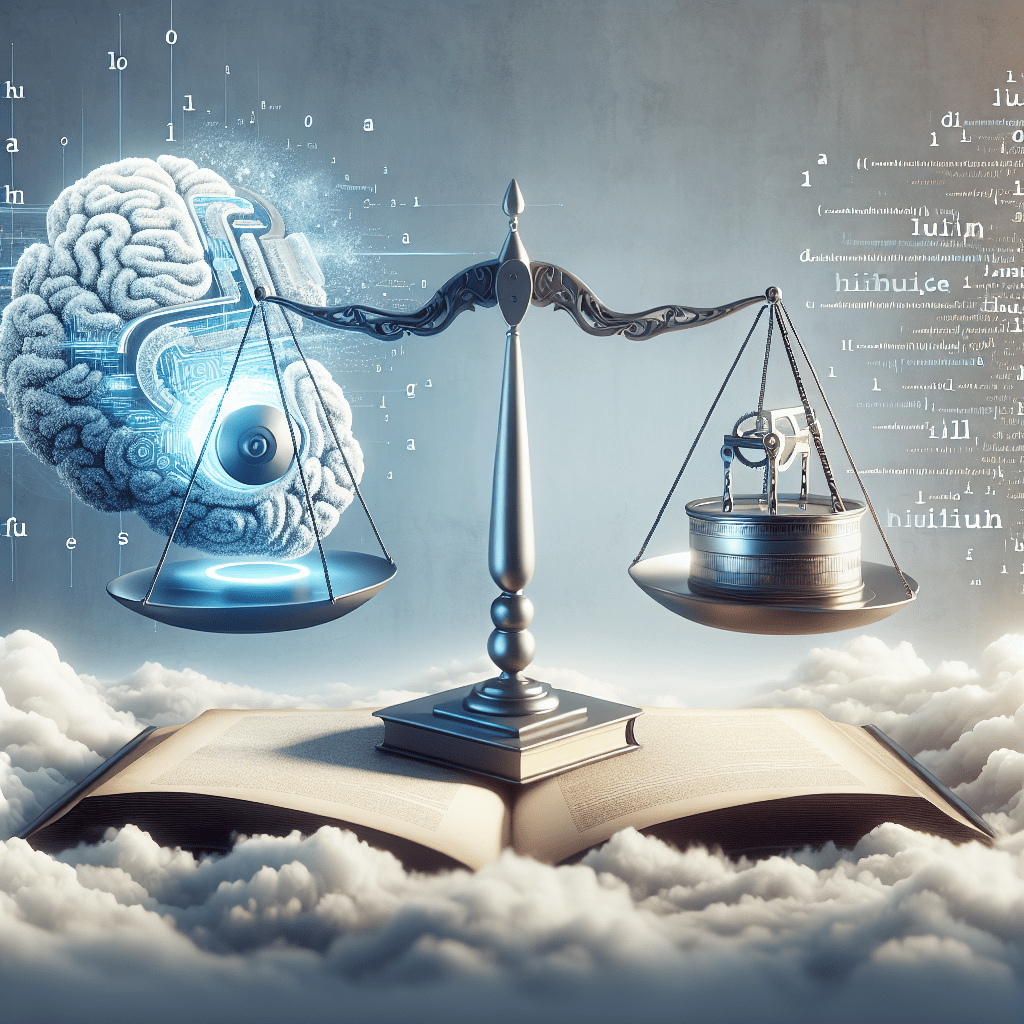Artificial Intelligence (AI) is a rapidly evolving technology that is changing the way we live and work. From self-driving cars to virtual assistants, AI is becoming an integral part of our daily lives. However, with these technological advancements come ethical considerations that must be addressed to ensure that AI enhances the human experience rather than detracts from it.
The Benefits of AI
AI has the potential to revolutionize industries such as healthcare, finance, and transportation. By automating repetitive tasks and providing valuable insights, AI can improve efficiency and accuracy in decision-making. For example, AI-powered algorithms can analyze vast amounts of medical data to diagnose diseases and recommend treatment options with greater precision than human doctors.
AI also has the potential to enhance creativity and innovation. By analyzing patterns and generating new ideas, AI can help businesses develop new products and services that meet the ever-changing needs of consumers. In fact, companies such as Google and Amazon have already used AI to improve their search algorithms and personalized recommendations.
The Challenges of AI
Despite its many benefits, AI also presents ethical challenges that must be addressed. One of the biggest concerns surrounding AI is bias. AI algorithms are only as good as the data they are trained on, and if that data is biased, the AI system will make biased decisions. For example, AI-powered recruiting systems have been found to discriminate against certain groups based on race, gender, or other factors.
Another challenge is the potential for AI to be used for malicious purposes. As AI becomes more sophisticated, there is a growing concern that it could be weaponized by malicious actors to spread misinformation, conduct cyberattacks, or even develop autonomous weapons. It is crucial that we develop ethical guidelines and regulations to ensure that AI is used responsibly and ethically.
Striking a Balance
As we continue to innovate and develop AI technologies, it is important that we strike a balance between innovation and ethical considerations. This means ensuring that AI systems are transparent, accountable, and fair. One way to achieve this is by implementing robust data privacy and security measures to protect sensitive information from being misused or exploited.
Another important consideration is the impact of AI on jobs and the economy. While AI has the potential to automate routine tasks and improve productivity, it also has the potential to displace workers and exacerbate income inequality. It is essential that we invest in retraining programs and education initiatives to help workers adapt to the changing labor market and ensure that AI benefits everyone, not just a select few.
Conclusion
In conclusion, AI has the potential to revolutionize the way we live and work, but it also presents ethical challenges that must be addressed. By striking a balance between innovation and ethical considerations, we can ensure that AI enhances the human experience rather than detracts from it. It is crucial that we develop ethical guidelines and regulations to ensure that AI is used responsibly and ethically, and that we invest in retraining programs and education initiatives to help workers adapt to the changing labor market. Only by working together can we harness the full potential of AI while safeguarding the values and principles that define us as human beings.
FAQs
What are some ethical considerations surrounding AI?
Some ethical considerations surrounding AI include bias in algorithms, data privacy and security, job displacement, and the potential for AI to be used for malicious purposes.
How can we ensure that AI is used responsibly and ethically?
We can ensure that AI is used responsibly and ethically by implementing robust data privacy and security measures, developing ethical guidelines and regulations, investing in retraining programs and education initiatives, and promoting transparency, accountability, and fairness in AI systems.
What are some potential benefits of AI?
Some potential benefits of AI include improved efficiency and accuracy in decision-making, enhanced creativity and innovation, and the ability to revolutionize industries such as healthcare, finance, and transportation.
Quotes
“The development of full artificial intelligence could spell the end of the human race.” – Stephen Hawking
#Human #Experience #Balancing #Innovation #Ethical #Considerations


